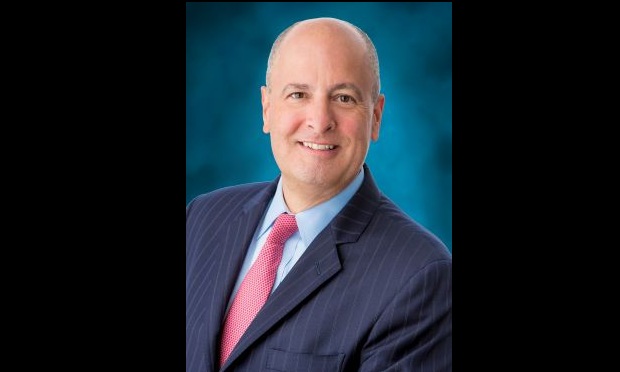Washington – Representative Gene Taylor (D-MS) continues to push for H.R. 1264, the Multiple Peril Insurance Act to be heard on the floor of the U.S. House of Representatives before the August Congressional recess. Environmental interests, consumer advocates, taxpayer watchdogs, the business community and insurers remain strongly united with the Obama Administration against this short-sighted bill.
"This proposed legislation is unnecessary and fraught with negative consequences that will harm consumers and the marketplace at a fragile time for our American economy," said David Sampson, president and CEO of the Property Casualty Insurers Association of America (PCI). "This approach is a mistake that could deliver devastating results to the U.S. jobs market and add billions to the federal deficit."
H.R. 1264 was originally scheduled for debate on the House Floor on July 22, but was ultimately delayed before it was considered. The bill could be back on the House agenda as early as this week, before Congress leaves for the August recess.
"Despite overwhelming opposition from the Obama Administration, leading environmental groups, consumer advocates and taxpayer watchdogs, Rep. Taylor still wants the House to hear his short-sighted bill," said Ben McKay, PCI's senior vice president of federal government relations. "We hope that House leadership will recognize the resounding wave of opposition that continues to grow and say no to this bad public policy."
Home, auto and business insurers are strongly opposed to this proposal to expand the National Flood Insurance Program (NFIP) to include windstorm insurance coverage. The Multiple Peril Insurance Act would shift the issuance of wind insurance policies from the private market to the federal government. PCI has determined that over $25 billion in private capital from homeowners insurance premium is allocated to the wind peril every year. A government take-over of this private homeowners' insurance marketplace is estimated to have the following effects:
Crushing Impact on U.S. Jobs Market
o PCI estimates that up to 41,775 private sector jobs could be lost or moved to Washington, D.C. This is the equivalent of $2.6 billion in lost wages that would be removed from the economy or shifted from local communities to federal government jobs.
Billions Added to Federal Deficit; Obama Administration Opposes
o State and federal governments could lose approximately $22.1 billion in premium taxes; income taxes and municipal bond investments from private insurance companies.
o The NFIP is already struggling with $18.2 billion of debt (without windstorm coverage), which is a significant burden on the program. The interest alone on this debt costs the NFIP more than $900 million a year, none of which goes to pay back any of the principal.
o The Federal Emergency Management Agency (FEMA) does not support adding windstorm coverage to the NFIP, citing concerns that this would threaten the long-term viability of the program. Secretary of Homeland Security Janet Napolitano has also expressed opposition to the multi-peril proposal.
o Last week, the Office of Management and Budget released its official Statement of Administration Policy opposing the Multiple Peril Insurance Act, as it would unnecessarily expand the federal government's role in the windstorm insurance market.
Environmental, Consumer, Taxpayer and Business Groups Object
o Environmental groups have expressed major concerns that this legislation would create incentives for more development in environmentally sensitive coastal areas, leading to increased damage to wildlife habitat, wetlands and coastlines.
o In a July 20, 2010, letter to the U.S. House of Representatives, groups including the Environmental Defense Fund, National Wildlife Federation and Sierra Club all urged lawmakers to reject this proposal to add windstorm coverage to the NFIP.
o The Consumer Federation of America opposes the Multiple Peril Insurance Act as it would hurt consumers by forcing greater taxpayer subsidies and providing developers with more incentives to build unsafe structures.
o Taxpayer advocate groups such as Americans for Prosperity and Americans for Tax Reform continue to sound the alarm by pointing to the billions of taxpayer dollars needed to add windstorm coverage to the NFIP.
o The U.S. Chamber of Commerce also opposes H.R. 1264 as the proposal threatens the jobs market and the availability of windstorm insurance coverage in the private market.
"Home, auto and business insurers are strong and stable," said Sampson. "Insurers stand ready to serve coastal communities should devastating storms develop. There is no need to add government-backed windstorm insurance to the flood program."
The states along the Gulf coast and eastern seaboard are home to over $19 trillion in insured property values. Private or state residual markets for windstorm coverage already exist for more than 99 percent of all coastal properties in the United States. Following Hurricane Katrina, additional consumer protections have been established for settling flood claims disputes through the implementation of the new "appeals process" (as included in the 2004 Flood Insurance Reform Act).
Want to continue reading?
Become a Free PropertyCasualty360 Digital Reader
Your access to unlimited PropertyCasualty360 content isn’t changing.
Once you are an ALM digital member, you’ll receive:
- Breaking insurance news and analysis, on-site and via our newsletters and custom alerts
- Weekly Insurance Speak podcast featuring exclusive interviews with industry leaders
- Educational webcasts, white papers, and ebooks from industry thought leaders
- Critical converage of the employee benefits and financial advisory markets on our other ALM sites, BenefitsPRO and ThinkAdvisor
Already have an account? Sign In Now
© 2025 ALM Global, LLC, All Rights Reserved. Request academic re-use from www.copyright.com. All other uses, submit a request to [email protected]. For more information visit Asset & Logo Licensing.








